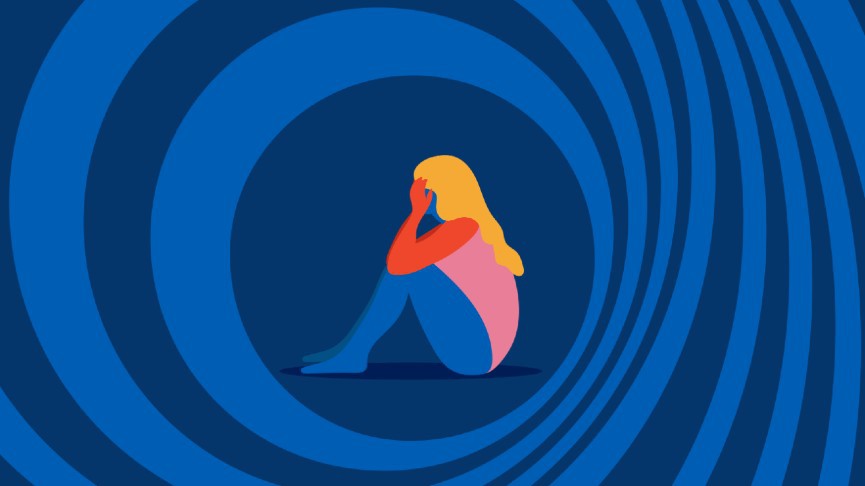Postpartum Mood Disorders: Beyond PPD

Having a baby is one of the most rewarding things we do as humans. It can also be incredibly hard and unpredictable.
With so much focus going towards preparing for pregnancy, birth, and then taking care of your new arrival, often the needs of the birthing person get left in the dust.
While it’s normal to feel a little off-balance or overwhelmed adjusting to your new life as a parent and sleep deprivation, what often goes undiscussed is the possibility and prevalence of postpartum mood disorders.
Postpartum mood disorders are very real, and go beyond what many people deem the average “baby blues”. The effects they have on birthing people can be long-lasting and often require professional treatment.
Let’s take a look at the postpartum mood disorders people face.
Postpartum Depression
PPD is the most commonly known postpartum mood disorder, affecting up to fifteen percent of new mothers and gestational parents (a gender-neutral term).
It’s not uncommon for a birthing person to experience a case of postpartum blues after giving birth, and specifically on day five postpartum. This is most likely due to a drop and adjustment in hormones after giving birth.
Postpartum Depression, on the other hand, is the prevalence of depression-related symptoms like loss of interest or pleasure, guilt, worthlessness, loss of energy, and possible thoughts of suicide, occurring during pregnancy and even up through six months postpartum.
It can be difficult to differentiate between normal effects of the physiological and lifestyle changes that come with being a new parent, and what is considered a major depressive disorder.
This is why it’s important to have resources ready, and a plan set in place in case you are in need of help. We’ll get to this later.
Postpartum Obsessive-Compulsive Disorder (OCD)
Postpartum OCD affects around one to three percent of postpartum people.
The general idea of OCD tends to paint a picture of someone who is obsessively clean and orderly. While that may apply to some people, that is generally a misnomer.
Postpartum OCD can manifest as obsessive thoughts and rituals surrounding the baby and its safety. This could look like consistently intrusive thoughts about the baby being hurt by accident or on purpose, or even of the parent harming the baby themselves. They may also constantly check on the baby or research symptoms them or the baby are experiencing.
Postpartum Psychosis
While in the case of Postpartum OCD, the parent feels disturbed by their intrusive thoughts, and typically won’t act on them, Postpartum Psychosis can come with delusions that they may be compelled to act on, potentially putting themselves or their baby in harm’s way.
Postpartum Psychosis can come on for seemingly no reason, however, someone with an underlying history of mental health disorders, like Bipolar Disorder, may have an increased risk.
Oftentimes Postpartum Psychosis is a medical emergency and may require medication and hospitalization. Some symptoms to look out for are extreme irritability, excessive changeability in moods, hallucinations, and delusions, severe confusion, difficulty sleeping and racing thoughts.
Postpartum Post Traumatic Stress Disorder (PTSD)
Around nine percent of people experience PTSD after birth. People with Postpartum PTSD may exhibit the same symptoms as someone with PTSD that is nonpregnancy related like reliving the trauma repeatedly, experiencing flashbacks or nightmares, a feeling of detachment, anxiety and feeling on edge, and more.
Birth is unpredictable, and there are certain causes and risk factors that may increase someone’s chance of developing Postpartum PTSD. It’s more common amongst people with a history of PTSD, or in someone who has complicated labor or high-risk pregnancy, as well as any emergency circumstances during birth like a C-section or postpartum hemorrhage.
Be Prepared
You never know what’s in store for you during and after birth, which is why it’s important to have a plan in place so that support is there if and when you need it.
Having a fourth-trimester care plan in place can look different for everyone. It may mean hiring a postpartum doula, preparing and freezing meals ahead of time, or organizing community support with friends and family. Knowing that your basic needs are taken care of gives you more space to focus on your baby and your healing.
Your support team may be able to help you process parts of your birth and postpartum experience that are affecting your mental health. Of course, not everyone has access to these resources. In that case, it can be helpful to research ahead of time online forums and support groups, as well as asking for local resources from your healthcare providers.
It’s also important to mention that postpartum mood disorders can also occur in people who have experienced pregnancy loss like stillbirth or miscarriage. These are such tender times and may require even more support and understanding with the added layers of loss.
Seek Help
While it’s important to be prepared and have plans and support in place, pregnancy – like life, is unpredictable. If you or someone you know is struggling in the postpartum period, getting professional help can be a lifesaver or changer.
There are many therapists that specialize in postpartum mood disorders, and know what tools to utilize to support their clients at this time. They might use Cognitive Behavioral Therapy (CBT), medication, Eye Movement Desensitization and Reprocessing (EMDR) in the case of PTSD, and lifestyle changes like dietary changes, exercise, and rest.
If you or someone you know is experiencing a postpartum mood disorder, you don’t have to go through this alone. Reach out, and get the help you deserve.

Natasha (she/her) is a full-spectrum doula and health+wellness copywriter. Her work focuses on deconstructing the shame, stigma, and barriers people carry around birth, sex, health, and beyond, to help people navigate through their lives with more education and empowerment. You can connect with Natasha on IG @natasha.s.weiss.


